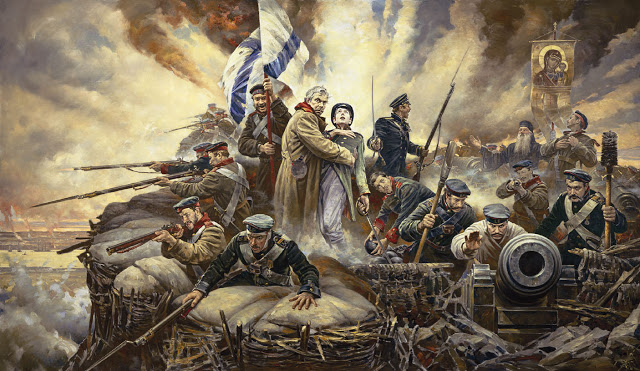Tolstoy on War: The Systemic Vision of a Tragedy

Leon Tolstoy set his novel, “War and Peace” (1867) during the Napoleonic invasion of Russia of 1812. But he had not witnessed that war — rather, Tolstoy had fought in another senseless and bloody war, the Crimean War (1853-1856), an experience that deeply influenced his thought. Tolstoy had a deep vision of the tragedy that wars are and his viewpoint is similar to our modern one based on statistics, although obtained by intuition only. Above, a painting by Vasilii Nesterenko (2005) that celebrates the Russian defense of Sevastopol in 1855.
From Tolstoy’s “War and Peace” (1867)
To us it is incomprehensible that millions of Christian men killed and tortured each other either because Napoleon was ambitious or Alexander was firm, or because England’s policy was astute or the Duke of Oldenburg wronged. We cannot grasp what connection such circumstances have with the actual fact of slaughter and violence: why because the Duke was wronged, thousands of men from the other side of Europe killed and ruined the people of Smolénsk and Moscow and were killed by them.
To us, their descendants, who are not historians and are not carried away by the process of research and can therefore regard the event with unclouded common sense, an incalculable number of causes present themselves. The deeper we delve in search of these causes the more of them we find; and each separate cause or whole series of causes appears to us equally valid in itself and equally false by its insignificance compared to the magnitude of the events, and by its impotence—apart from the cooperation of all the other coincident causes—to occasion the event.
…click on the above link to read the rest of the article…